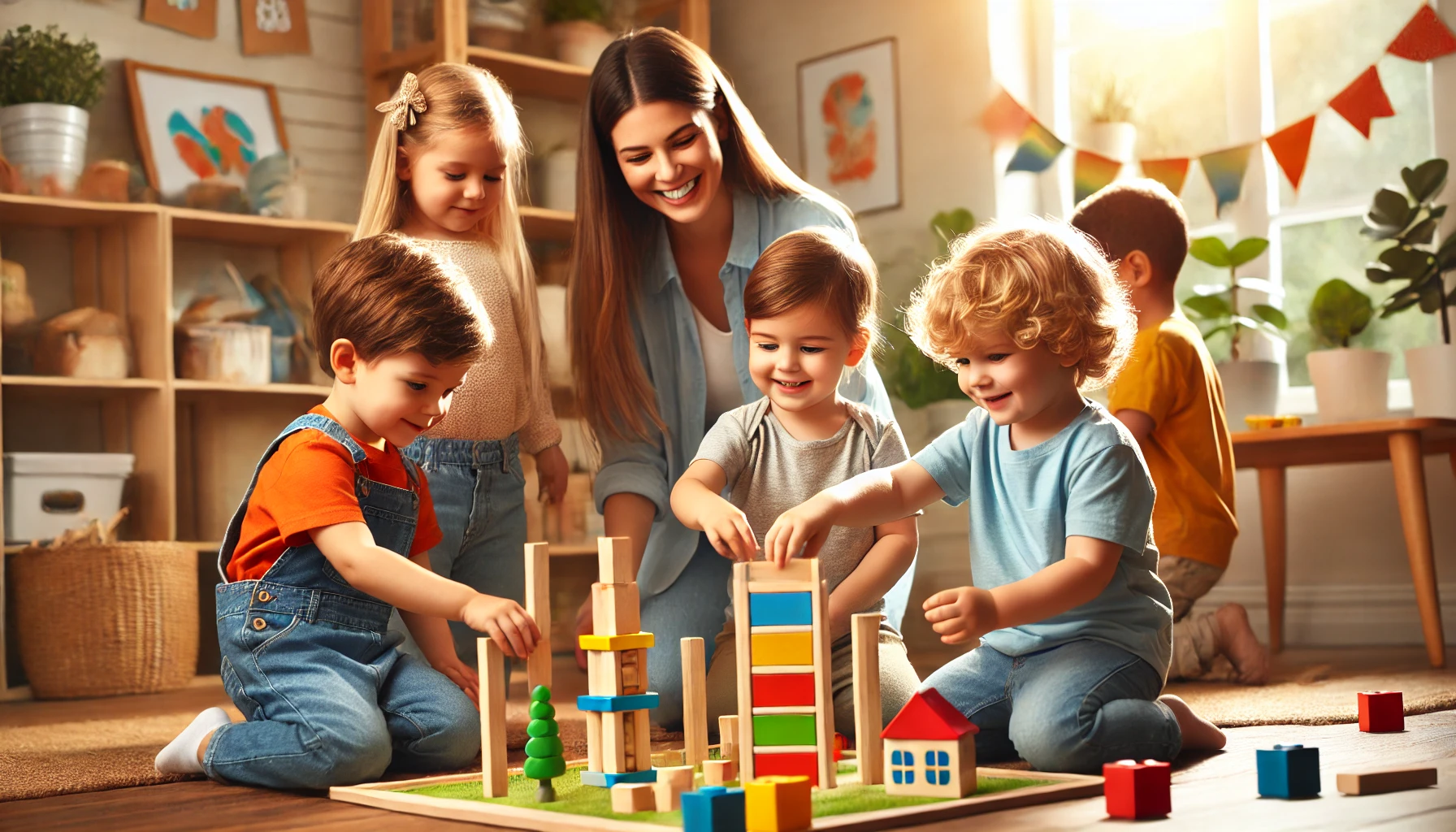How to Teach Young Children About Teamwork and Cooperation
Teaching young children about teamwork and cooperation helps them develop social skills, problem-solving abilities, and a sense of belonging. When kids learn to work together, share responsibilities, and support others, they build strong relationships and become more adaptable in group settings. Parents can encourage teamwork through games, collaborative activities, and role-modeling. In this article, we’ll explore practical ways to help children understand and practice teamwork.
Why Teaching Teamwork is Important
- Encourages social skills – Helps children communicate and interact positively.
- Builds problem-solving abilities – Teaches kids to find solutions together.
- Develops patience and empathy – Helps kids understand different perspectives.
- Promotes responsibility and leadership – Encourages kids to contribute and take initiative.
- Prepares for school and group settings – Helps children succeed in team activities.
1. Model Teamwork at Home
Children learn cooperation by observing how adults work together.
Activity Idea:
- Say, “Let’s clean up together—it’ll be faster if we work as a team!”
- Demonstrate taking turns and listening to each other’s ideas.
- Show appreciation for teamwork: “Great job helping your brother set the table!”
What Kids Learn:
- That working together makes tasks easier
- How to support and help others
- The importance of sharing responsibilities
2. Play Cooperative Games
Games help children experience teamwork in a fun and engaging way.
Activity Idea:
- Play puzzle-building games, where kids complete a picture together.
- Try relay races, where children take turns completing a task.
- Use building blocks or LEGO to create a structure as a team.
What Kids Learn:
- How to collaborate and contribute to a group effort
- That teamwork requires patience and cooperation
- The joy of achieving something together
3. Encourage Turn-Taking and Sharing
Practicing turn-taking helps children develop patience and respect for others.
Activity Idea:
- Play board games where kids take turns rolling the dice.
- Use a sharing timer to give each child a turn with a toy.
- Praise kids when they wait patiently: “I love how you waited for your turn!”
What Kids Learn:
- That everyone gets a chance in a team setting
- The importance of fairness and patience
- How sharing makes playtime more fun for everyone
4. Assign Small Team Tasks
Giving children opportunities to complete tasks together strengthens teamwork skills.
Activity Idea:
- Assign group chores, like cleaning up toys together or setting the dinner table.
- Encourage siblings or friends to work on a simple project, like baking cookies or organizing books.
- Praise teamwork efforts: “Look how great the room looks now that you worked together!”
What Kids Learn:
- That teamwork makes work faster and more enjoyable
- How to divide responsibilities and contribute equally
- The value of helping each other
5. Teach Kids to Solve Problems Together
Encouraging children to work through challenges as a team builds problem-solving skills.
Activity Idea:
- If two children disagree, ask, “How can we find a solution together?”
- Role-play situations where kids must cooperate to solve a pretend problem.
- Encourage brainstorming: “What ideas do you have to fix this together?”
What Kids Learn:
- How to listen to others’ ideas and perspectives
- The importance of finding fair solutions in a team
- That cooperation leads to better problem-solving
6. Read Books About Teamwork
Stories help children understand the value of working together.
Activity Idea:
- Read The Little Red Hen Makes a Pizza (about teamwork and cooperation).
- Discuss the story: “What happened when the characters worked together?”
- Ask kids to share a time when they helped someone or worked on a team.
What Kids Learn:
- That teamwork makes tasks easier and more enjoyable
- How cooperation leads to success
- The importance of helping others
7. Encourage Kids to Support and Cheer for Others
Celebrating teammates’ successes teaches children to be supportive and kind.
Activity Idea:
- Practice cheering for family members when they complete a task.
- Say, “Let’s clap for your friend’s great idea!”
- Encourage kids to use positive words like “Good job!” and “You did great!”
What Kids Learn:
- That supporting others builds stronger teams
- How kindness and encouragement make a difference
- The value of celebrating group achievements
8. Praise and Reinforce Teamwork Efforts
Recognizing when children work well with others encourages them to keep practicing teamwork.
Activity Idea:
- Say, “I love how you worked with your sister to build that tower!”
- Use a Teamwork Star Chart, where kids earn stars for cooperating.
- Ask, “How did it feel to work together and finish the task?”
What Kids Learn:
- That teamwork is valued and appreciated
- How cooperation helps everyone succeed
- The motivation to continue working well with others
Final Thoughts
Teaching young children about teamwork and cooperation helps them develop essential social skills, empathy, and a sense of responsibility. By using cooperative games, encouraging problem-solving, and praising teamwork efforts, parents can guide children in building strong habits of working well with others.
